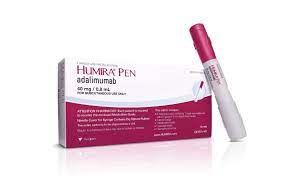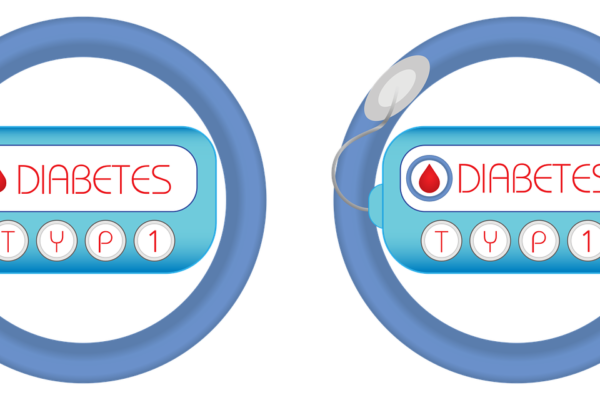Leqembi (lecanemab), a recently approved medicine from Biogen/Eisai for the treatment of Alzheimer’s disease, was given FDA approval in January 2023. Leqembi is a monoclonal antibody that preferentially binds to and destroys amyloid beta plaques, which is anticipated to be clinically significant for the treatment of Alzheimer’s disease. The antibody targets the amyloid beta A4 protein.
Alzheimer’s disease is a brain ailment that gradually impairs memory, reasoning, and, eventually, the capacity to do even the most basic tasks. The majority of illness sufferers experience late-onset symptoms, which begin to show in their mid-60s. Between the ages of 30 and 60, early-onset Alzheimer’s is extremely uncommon.
The most typical cause of dementia in older persons is Alzheimer’s disease. At least 55 million people worldwide are thought to be affected with Alzheimer’s disease or a different kind of dementia. Scientists have been looking for a cure for the condition, which is completely lethal, for decades without being able to identify the cause.
It is believed that beta-amyloid plaques that build up in the brain and harm nerve cells are one of the causes of Alzheimer’s disease. Leqembi inhibits the progression of Alzheimer’s disease by reducing amyloid beta plaques. Although it does not treat Alzheimer’s disease, leqembi aids in its management.
Leqembi first received FDA approval on January 6, 2023, through the Accelerated Approval Pathway, and on July 6, 2023, Leqembi received standard FDA approval.
Leqembi is an FDA-approved medication to treat Alzheimer’s disease in those who have Alzheimer’s disease in its early stages, including mild cognitive impairment or mild dementia, and presence of amyloid beta pathology.
Leqembi targets beta-amyloid aggregates, which can result in ARIA (amyloid-related imaging abnormalities). ARIA is a side effect that typically does not create any symptoms but has the potential to do so. The most common symptom of ARIA is an initial enlargement of certain brain regions, which often goes away with time. Smaller areas of bleeding in the brain can occasionally happen, as can smaller spots of bleeding in or on the surface of the brain in some persons.
Leqembi Market Share
Leqembi (lecanemab), a recently approved medicine from Biogen/Eisai, was given FDA approval to treat Alzheimer’s disease. The ground-breaking medication is expected to be a blockbuster, bringing in a total of $12.9 billion in projected sales between 2023 and 2028.
Leqembi is anticipated to produce $12.9 billion in global sales between 2023 and 2028. With anticipated total sales of $762 million between 2023 and 2028, Aricept, the second-largest licenced Alzheimer’s medicine, will be outsold by this projection. Thus, the predicted sales of Leqembi would be 17 times higher than those of Aricept.
The US is anticipated to be Leqembi’s largest market, accounting for $7.7 billion of projected sales from 2023 through 2028. Leqembi is predicted to receive regulatory approval in Europe and Japan in October 2023, which is likely to boost revenue. Sales in these areas are anticipated to soar at a compound annual growth rate (CAGR) of 77% through 2028, making up 39% of the drug’s overall revenue share for the period 2023–2028.
The US market, which accounts for 60% of the drug’s total revenue share, is still essential for the drug’s commercial success and is expected to grow at a CAGR of 106% through 2028. In 2030, we estimate that there will be 2.5 million eligible patients worldwide, including China, India, and other nations.
According to a panel of specialists on Alzheimer’s disease, the drug’s ability to slow cognitive decline may not outweigh its health risks, or be worth the toll on scarce healthcare resources.
Leqembi’s advertised pricing in the United States is $26,500 per year, although Europe has a considerably more rigorous cost assessment and negotiation mechanism. However, even before learning that Medicare spending on Leqembi could reach as much as $5.1 billion annually, accounting for both the $26,500 proposed annual acquisition cost and ancillary spending like imaging, the Centres for Medicare & Medicaid Services (CMS) have maintained a strict coverage policy for reimbursing the medication.
Leqembi is now available to a far larger population thanks to the FDA’s approval because Medicare has announced it will pay the $26,500 yearly cost.
Following the FDA’s rapid approval of Leqembi in January, Medicare said that it would only pay clinical trials going forward. As long as patients and healthcare professionals take part in data collection registries that monitor how the medication functions in actual-world conditions, Medicare will now generally cover it.
A registry will prohibit those who could benefit from getting the drug, according to industry interests, patient activists, and lawmakers from both parties. Some medical gadgets are registered in registries, but FDA-approved drugs are never included. Patients may also have to pay co-insurance costs that total thousands of dollars annually, regardless of the registry requirement.
Eli Lilly’s donanemab, a comparable monoclonal antibody that targets amyloid beta plaques and is expected to generate total sales of $8.1 billion by 2028, competes with Leqembi. Leqembi is now the market-leading medication in this field as the FDA rejected Eli Lilly’s request for speedy approval of donanemab in January 2023.
Analysts claim that the approval of Leqembi is “a mixed bag” because of the drug’s risk warnings and the backlogs at infusion centres.
As experts analysed the U.S. Food and Drug Administration’s decision Thursday about the Alzheimer’s treatment Leqembi, a landmark drug approval did not increase Biogen Inc. (BIIB) shares.
After Leqembi, received the FDA’s full approval, some analysts concentrated on potential problems with the drug’s launch. There are various constraints in place, most notably the capacity of infusion centres, so that adoption will probably be delayed. Every two weeks, Leqembi is intravenously injected; infusions are normally carried out at medical facilities or infusion therapy facilities.
Leqembi won’t be lucrative until late this year or 2025, according to Biogen. However, some analysts predict that Leqembi will generate billions of dollars in income in the coming years. A 13% market penetration would result in around $5.2 billion in U.S. sales for the estimated 1.5 million early Alzheimer’s patients in the country.
Leqembi gives people with Alzheimer’s disease new hope. The substantial effect Leqembi is anticipated to have on the market is highlighted by the estimated total sales of $12.9bn by 2028. Leqembi is in a good position following the denial of donanemab’s request for speedy approval and is anticipated to become one of the top-selling medications for Alzheimer’s disease in the years to come.
References:
https://www.pharmaceutical-technology.com/comment/alzheimers-drug-leqembi-12-9bn-by-2028/
https://www.drugs.com/leqembi.html
https://www.navlindaily.com/article/17445/leqembi-unlikely-to-be-widely-used-in-europe






Leave a Reply